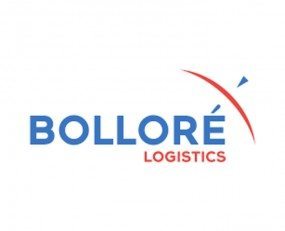
Continuing its drive to accelerate high value-added innovation projects for its customers, Bolloré Logistics’ B.Lab, accompanied by AI consulting firm Emerton Data, is pursuing its exploratory approach with the aim of better meeting customer needs through the innovation opportunities offered by new technologies.
The transport and logistics sector is faced with growing uncertainties, such as fluctuations in supply and demand, rising fuel and energy costs, and disruptions due to global crises, all of which contribute to the volatility of freight rates.
At the same time, the emergence of Industry 4.0 is particularly marked by the development of Artificial Intelligence, the implementation of digital twins of storage and transport infrastructures. These elements, combined with data analysis capabilities, offer new opportunities such as predictive analysis and planning optimization, and we are constantly asking ourselves how these new technologies can concretely respond to Bolloré Logistics’ current challenges.
Predictive analysis, based on machine learning models that learn from large samples of historical data, theoretically enables us to anticipate future trends in stable, constant environments. To date, however, it has become clear that it is impossible to accurately predict the future in such uncertain environments. Even the best models still offer erroneous predictions. Tools and use cases are therefore more geared towards scenario simulators than forecasting applications.
In addition, and thanks to the advent of digital twins of storage and transport infrastructures, advanced optimization models based on larger volumes of data have been perfected. Digital decompartmentalization and data sharing between industry players have enabled the development of advanced optimization algorithms for planning, scheduling, procurement and logistics. Here again, the main use is to generate “optimal” scenarios.
In other words, these new technologies offer us the opportunity to scenarize or simulate the behavior of a network in the future, based on current and historical data, with associated probabilities of occurrence. They therefore facilitate decision-making by enabling us to adjust behavior, implement risk mitigation measures or develop a complete new strategy in line with the objectives to be achieved.
“Bolstered by these findings, our ambition at Bolloré Logistics is to push these technological applications within our roadmap and thus bring new, high value-added services to our customers. To better qualify the most relevant use cases, we organized a first workshop dedicated to predictive analysis in October 2023 at the B.Lab, with the help of Emerton Data. Based on design thinking methodologies and a co-construction approach, this workshop brought together representatives from all departments (sales, implementation team, information systems, purchasing, operations, IT, …) to highlight customer and business needs, as well as the technological constraints to be considered in such projects.
In the end, the workshop enabled us to highlight two key concepts and ask some specific questions:
Next steps: developing these concepts and studying the technological feasibility to create the foundations for new, sustainable projects for the group and our customers.”
Source: Bolloré Logistics